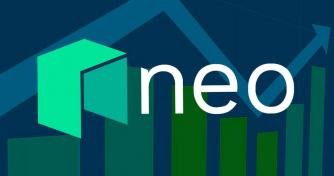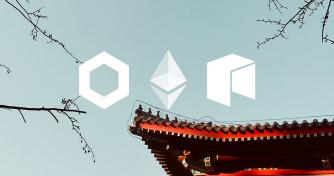 Founder of China’s NEO says DeFi is just getting started, launches “Flamingo”
Founder of China’s NEO says DeFi is just getting started, launches “Flamingo” Founder of China’s NEO says DeFi is just getting started, launches “Flamingo”

Photo by Elizabeth Gottwald on Unsplash
The decentralized finance (DeFi) crypto market has dominated both charts and headlines in the past few months, with some heralding the nascent, yet billion-dollar, crypto sub-sector as the next frontier for attracting capital and retail participants.
But while much of the DeFi and “yield farming” activity has been limited to Ethereum-based projects and ERC20 tokens, the founder of NEO, Da Hongfei, said in a recent podcast that other chains are soon coming with their own DeFi iterations to capture more of the market — minus the slow transactions and high gas fees.
For the uninitiated, yield farming is a sub-set of DeFi that sees users lock up their capital on crypto protocols to be lent out to other users at interest; and receiving part of that interest payout based on the liquidity they lend out. Other DeFi applications include peer-to-peer noncustodial trading.
NEO comes to the DeFi playground
NEO, one of the biggest crypto projects to come out of China and long touted as an Ethereum competitor, stepped into the DeFi game this month with the announcement of Flamingo this month. The project has already locked up $1.6 billion at press time.
The total value locked participating in Flamincome/Flamingo has surpassed 1.6 billion USD. $FLM pic.twitter.com/JrMgU8LxEQ
— Flamingo Finance (@FlamingoFinance) September 28, 2020
With the launch, NEO joined the likes of crypto exchange Binance, whose Binance Smart Chain blockchain also saw projects like “Bakery Swap” and “Pancake Swap” entice yield “farmers” with high annualized yields and low fees.
And the China market could just be waking up to that, noted NEO’s Hongfei. “Chinese citizens have done this more or less, probably dealing with banks, dealing with Alipay and WeChat, at least doing this kind of financial behavior without going to the bank,” said Hongfei, referring to the demographic’s compatibility with financial and cashless applications in the country.
He added (translated from Chinese):
“Lending and borrowing, decentralized exchanges, insurance, and all kinds of derivatives are on the rise in DeFi. The initial stage DeFi infrastructure has a solid good start, and now it is time to see more and more applications to be built and innovated on DeFi.”
Flamingo, NEO’s new DeFi project
Hongfei also noted that DeFi has ushered in newer possibilities of financial tasks and applications, all of which can allow users to access and tap into newer forms of capital.
He may not be very far from achieving that goal. Flamingo, an interoperable, full-stack DeFi protocol built on the NEO blockchain, was earlier listed on Binance as part of its Launchpool program and began trading on itself, OKEx, and FTX earlier today.
? $FLM @FlamingoFinance is NOW open to trade @OKEx!
Trade $FLM: https://t.co/lXYvOKJnMI
Stake $OKB to mine $FLM: https://t.co/O0ai6ukw9K
Details: https://t.co/8UtEVJACEF https://t.co/SJRDlNckhs— OKEx (@OKEx) September 28, 2020
Flamingo allows users to participate as traders, stakers, and liquidity providers, paying out yields to those who lock up their NEO on its protocol.
Meanwhile, Hongfei’s words came at a time when the Chinese government “usually” spoke about cryptocurrencies on a state-run news broadcast last week.
As CryptoSlate reported at the time, China said cryptocurrencies were the “best performing asset class of 2020” and even pointed out, specifically, the rise of DeFi as one of the leading factors.




















































































































